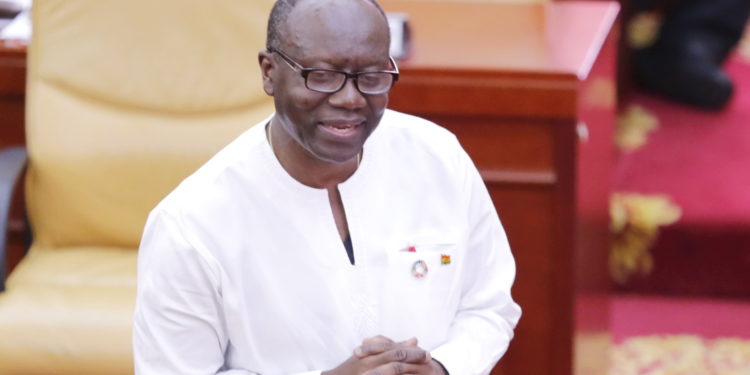Ghana’s fiscal struggle persists as interest payments continue to burden revenue
Despite completing the Domestic Debt Exchange Programme (DDEP) in February 2023, which was intended to alleviate interest payment burdens, Ghana’s fiscal challenges persist. The programme, which successfully reduced interest payments by an estimated ¢12.1 billion, accounting for approximately 9% of expected 2023 revenue, has yet to make a significant dent in the country’s fiscal woes.
Interest payments still loom large, constituting a staggering 45% of revenue and grants on a commitment basis. Though a glimmer of hope comes from the ongoing restructuring of domestic Foreign Currency bonds, Fitch Ratings cautions against overly optimistic expectations for further reductions in interest payments, as the impact is projected to be moderate.
Notably, since May 2022, the Government has relied solely on issuing short-term bills. While this shift initially brought about significant yield declines following the completion of the DDEP, concerns arise about the sustainability of such an approach as it poses refinancing risks in the near future.
Adding to the fiscal strain, Fitch Ratings predicts public sector debt to climb to a worrisome 99% of Gross Domestic Product by the end of 2023, up from 88% at the close of 2022. This surge is primarily attributed to a depreciating cedi against the US dollar, impacting the country’s overall debt dynamics.
In the absence of a Common Framework restructuring, Fitch envisions public sector debt gradually declining to 95% of GDP in 2024 and 94% in 2025, contingent on continued fiscal consolidation and stabilization of the cedi.
Under the IMF programme, Ghana faces the arduous task of implementing a primary fiscal adjustment of 5.1% of GDP by 2026, compared with the 2022 levels. To achieve this ambitious goal, Fitch anticipates a reduction of the primary deficit from 3.6% in 2022 to 1.3% on a commitment basis in 2023.
Subsequently, the primary deficit is projected to narrow to 0.1% in 2024, eventually transforming into a 0.9% primary surplus by 2025. This fiscal turnaround will be supported by revenue increases of about 2.0% from 2022 to 2025, capital expenditure rationalization of 1.0%, and additional expenditure savings of 1.0%.
As Ghana grapples with mounting fiscal challenges, market participants closely monitor the country’s efforts to navigate debt management and economic stabilization. The effectiveness of ongoing fiscal measures, alongside the impact of global economic conditions, will prove critical in shaping Ghana’s economic trajectory in the coming years.







